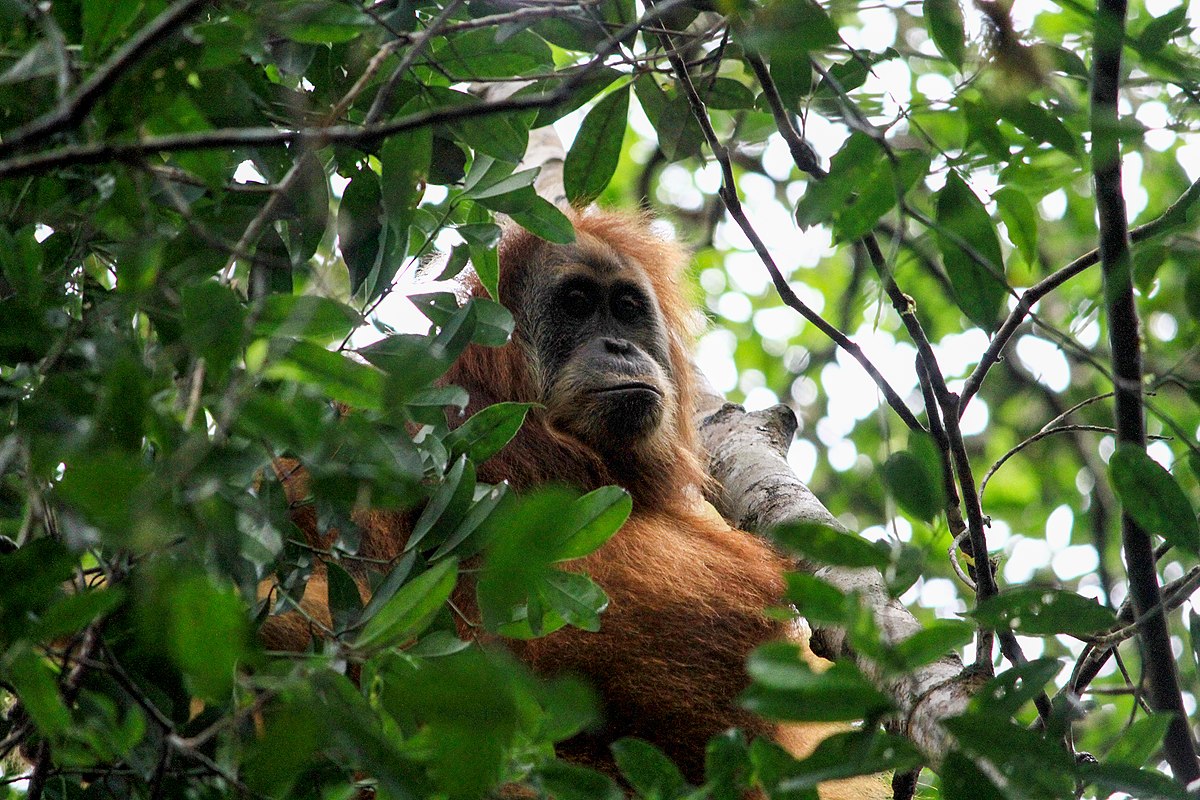Until relatively recently these orangutans lived across a much wider range of various habitats.
Orangutans are critically endangered throughout their remaining ranges in Malaysia and Indonesia. In fact, experts have warned that the great apes could be driven extinct in the wild within a decade due to ongoing habitat loss as the rainforests they inhabit continue to be cleared for agricultural land.
Now comes more bad news: an extremely rare subgroup of the great apes, known as the Tapanuli orangutan (Pongo tapanuliensis), is facing imminent dangers of going extinct, according to a team of experts.
Widely seen as the most threatened great ape species in the world, these orangutans number a mere 800 or so and inhabit a small area of upland forest on the island of Sumatra in Indonesia.
Until relatively recently these orangutans lived across a much wider range of various habitats, yet by now they have been driven uphill by hunters and habitat loss into the last vestiges of their former range across just 1,000 square kilometers in the Batang Toru mountains. That is only 2.5% of the animals’ historical range, the scientists explain in a study.
“A combination of historical fragmentation of forest habitats, mostly for small-scale agriculture, and unsustainable hunting likely drove various populations to the south, east and west of the current population to extinction,” the experts write.
If as few as 1% of the current adult population of the orangutans, which were recognized as a separate subspecies in 2017, get killed, captured or forced to relocate each year, these great apes will likely go extinct, the scientists say.
Making matters worse for the primates is that they are not well-adapted to living in their current highland environment where they have been driven over time. They would be far more suited to living in lowland forests and peatlands, the experts say.
Meanwhile, the planned construction of a new hydroelectric plant near where Tapanuli orangutans live could deal another blow to their already diminished environment, reducing their chances of survival even further. Continued logging and mining activities in the area as well as poaching, too, place further strains on the primates.
The solution may lay in relocating the most threatened groups of the animals while making sure that the current habitat of Tapanuli orangutans remains free of further degradation.
“Saving this species will require [the] prevention of any further fragmentation and killings or other removal of animals from the remaining population. Without concerted action to achieve this, the remaining populations of P. tapanuliensis are doomed to become extinct within several orangutan generations,” the experts warn.
This story first appeared on Sustainability Times
South Africa Today
© 2021 Sustainability Times.
This article is licensed under a Creative Commons Attribution-ShareAlike 4.0 SA International License.











